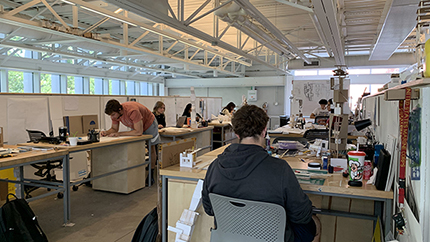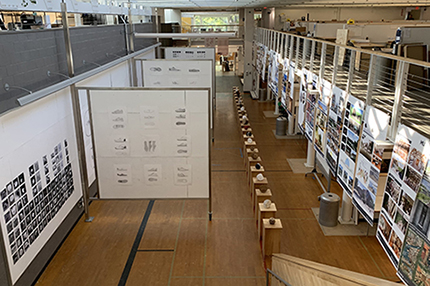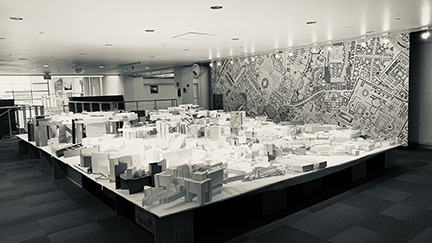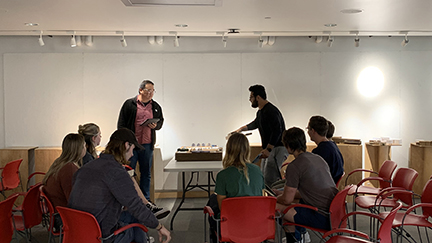Earn your Architecture Degree at Marywood University
Earn your accredited architecture degree through a studio-based, career-focused program at Marywood University — available at both undergraduate and graduate levels — right here in Scranton, Pennsylvania. Whether you're designing buildings, managing construction, or exploring virtual environments, our programs combine art, science, and technology to prepare you for a meaningful career in the built environment.
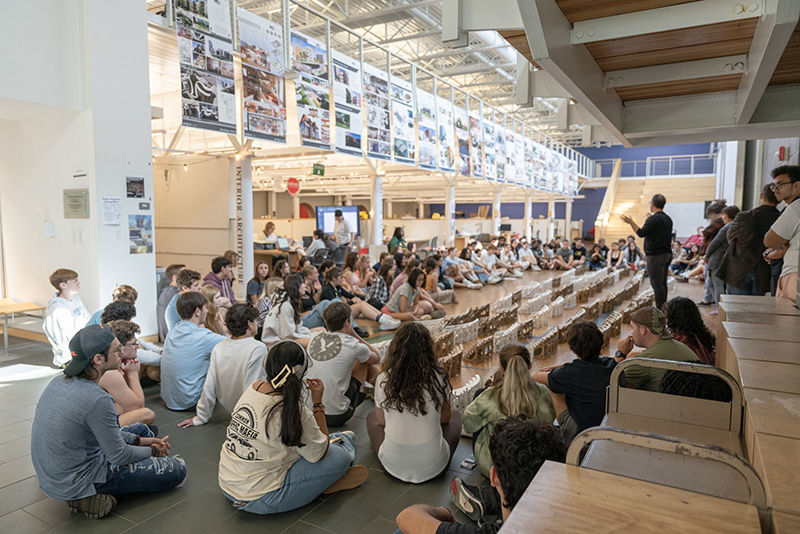

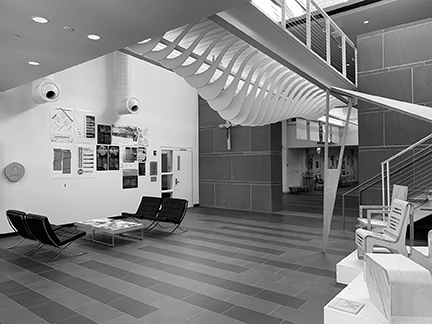 Entrance to the building with student work displayed
Entrance to the building with student work displayed